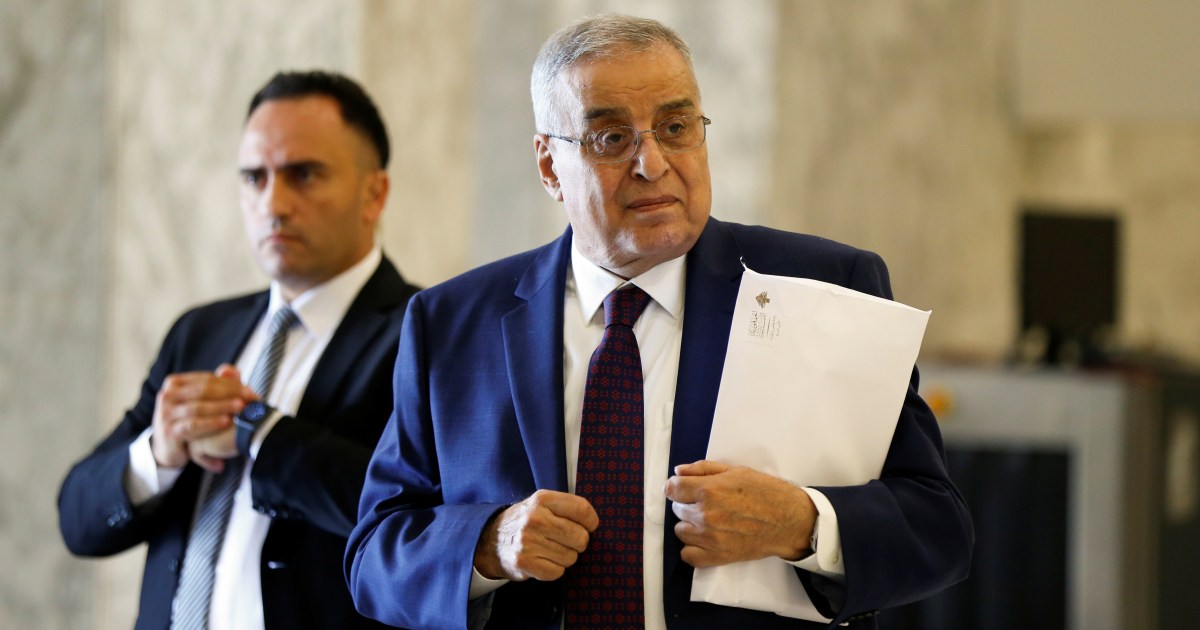Abdullah Bou Habib, the Lebanese Minister of Foreign Affairs, said that the current crisis with the Kingdom of Saudi Arabia due to the statement of the Lebanese Minister of Information, George Kordahi, requires time to resolve, and this will not be instantaneous.
He added in an interview with the evening program on Al Jazeera Mubasher that Qardahi's statement was a month before he received the portfolio of the Ministry of Information, and that the minister himself had several statements praising the Kingdom and its efforts.
Bou Habib added, "We have a crisis that has many complications and must be resolved, and the Minister of Information gives his opinion firmly. There are those who accept this and those who reject it, and he told us that Lebanon's interest comes before his personal interest, and he is looking for a final decision."
The Lebanese Foreign Minister to Al Jazeera Mubasher: Minister #Qardahi said that the interest of #Lebanon prioritizes his personal interest, but he is consulting to take his last decision pic.twitter.com/GvZgjtVW83
- Al Jazeera Mubasher (@ajmubasher) October 30, 2021
In response to a question: Do you expect Qardahi to resign?
The Lebanese Foreign Minister replied, “It is difficult to predict, especially since the country has many political components and they are strongly present in the country, and there is no confirmation in this regard.”
Bou Habib stressed that the new Lebanese ministry does not have a member of Hezbollah, adding that Hezbollah has not given any opinion today regarding the current crisis.
He commented on the possibility of the government's resignation - in its entirety - on the Prime Minister's decision, or withholding confidence from the government through Parliament, adding that no-confidence is out of the question in the current situation Lebanon is going through, and that the Prime Minister said more than once during the day that there is no resignation, and we want to tackle this crisis.
Does the Lebanese government raise the possibility of its resignation in light of Minister Qardahi's statements regarding Saudi Arabia?
pic.twitter.com/bOaoZu1BbO
- Al Jazeera Mubasher (@ajmubasher) October 30, 2021
Bou Habib added, “We hope that there will be a dialogue and not a dictation, whether between a country and a country or through the Arab League, but the course that events have taken requires time, because politicians have interests and positions that they take into account before making the last decision.”
A ministerial crisis cell formed by Prime Minister Najib Mikati (who is in Glasgow) met in Beirut, and the Chargé d'Affairs of the US Embassy in Beirut Richard Michael participated in part of the meeting to discuss ways to resolve the crisis with Riyadh.
In his speech to the evening program on Al-Jazeera Mubasher, the Lebanese Foreign Minister revealed that the United States demanded calm among the Arab countries regarding the crisis of Qardahi's statements, noting that "the solution must be satisfactory to Riyadh and Beirut together."
Earlier today, Education Minister Abbas Al-Halabi told reporters, "We say that the treatment is in place, and we hope that we will soon come to a realization of this matter and reopen a new page."
The Lebanese presidency said that President Michel Aoun "followed the deliberations that were put forward during the meeting" of the crisis cell.
She added that the president "reaffirmed his keenness to establish the best and best relations with the sisterly Kingdom of Saudi Arabia, and institutionalize and consolidate these relations through the signing of bilateral agreements between the two brotherly countries, so that the positions and opinions issued by some do not affect them, and cause a crisis between the two countries, especially since This kind of thing happened more than once.”
In Cairo, the Secretary-General of the League of Arab States, Ahmed Aboul Gheit, expressed his concern and regret at the rapid deterioration in the Lebanese-Gulf relations.
He said in a statement that he had "confidence in the wisdom and ability of Presidents Aoun and Mikati to seek quickly in order to take the necessary steps that can put an end to the deterioration of those relations."
In a statement, Wednesday, the Lebanese government expressed its “rejection” of Qardahi’s statements, noting that he “does not express the government’s position at all,” but Qardahi refused to “apologise” for his “personal opinions,” and said, “I did not wrong anyone and did not attack anyone.” ;
Why did I apologise?”
And George Kordahi, the new Minister of Information in the Lebanese government, considered in a television interview, broadcast last Monday and conducted before he took over the media portfolio in the Lebanese government last September, that the Houthis were "defending themselves in the face of external aggression" from Saudi Arabia and the UAE.
Saudi Arabia, Bahrain, Kuwait and the UAE have withdrawn their ambassadors from Lebanon in response to Qardahi's statements, and Qatar has expressed strong dissatisfaction and denunciation of the statements of the Lebanese Minister of Information towards the Kingdom of Saudi Arabia.
These rapid diplomatic developments are putting the Lebanese government under more pressure in light of the deteriorating economic situation, the collapse in the local currency exchange rate and the lack of fuel, and hampering its plans to obtain financial support from the Gulf.
Since 2015, a conflict has been taking place in Yemen between a government backed by a Saudi-led military coalition that includes Bahrain, the UAE and other countries on the one hand, and the Houthis, who control large areas in the north and west of the country, as well as the capital, Sanaa, since 2014 on the other.
The conflict has resulted in the deaths of tens of thousands of people, including many civilians, according to several humanitarian organizations, and the United Nations has repeatedly stressed that Yemen is currently witnessing the worst humanitarian crisis in the world.

